I need to know what and how to do what they are doing
I need to know how to forgive
even when the cruel ones won't admit
they have been cruel
I need to join in this experiment of living compassion
so that my heart can open its wings
and at last be free
Everyone needs to understand the secret of this deep and honest way
It is the great mystery of compassion that awaits us all
Oh my African brothers and sisters
teach us with your soft talk of tribal spirit
how to eat the truth and bow to ourselves
Mark Nepo
marknepo.com
I was moved to write about this as I heard a black South African share that his people's trauma of apartheid is now surfacing and that there is much healing to be done. One wonders in the face of the recent xenophobia attacks, if in fact there has been much change in the new South Africa when the people are turning on their own brothers and sisters but calling it Xenophobia. It seems for me that the connection needs to be re remembered. Xenophobia is a fear or contempt of that which is foreign or unknown, especially of strangers or foreign people. It comes from the Greek words, xenos meaning "foreigner" "stranger" and phobos, meaning fear
Wikepedia
April 27 1994, marked the day that all people could vote in South Africa, Archbishop Desmond Tutu was sixty two years old and Nelson Mandela was seventy six! The lines that formed that day and the hours that they had to wait helped people to find each other. They discovered not a Colored, a Black, a White or an Indian. They found other humans who had the same hopes, dreams and concerns. They found fellow South Africans that shared a common humanity. Ubuntu
However few sections of society in South Africa were left untouched by violence in the final decade of South Africa's last white government. South Africa in an effort to rehabilitate their nation, established a great national experiment, the Truth and Reconcilliation Commitee. "Our nation sought to rehabilitate and affirm the dignity and personhood of those who for so long had been silenced, had been turned into annonymous, marginalized ones. Now they would be able to tell their stories, they would remember and in remembering would be acknowledged to be persons with an inalienable personhood." Archbishop Desmond Tutu.
Tutu's book "No Future without Forgiveness" is a personal memoir of his chair of the TRC
Ubuntu he says was at the heart of the TRC's labors and it sums up Tutu's philosophical framework for addressing apartheid, its truths and its beginnings in the reconciliation process. He believes that at the foundation of human rights is Ubuntu and without it, it cannot stand.
When Ubuntu is at play it shows us the interdependance by which we are inextricably bound, so aparthied showed that in evil we are too inextricably bound. To dehumanize another inexorably means that one is dehunmanized as well. The promotion of National Unity and Reconciliation Act brought the Truth and Reconcilaition Commission into existence. It was established in 1995 under the manadate of Tutu to examine the crimes that were comitted during apartheid between 1960-1994. It examined a South African past and it began a remarkable process of national healing and reconciliation.
Over a two year period it took more than 20,000 statements from individual victims of human rights abuse, and received more than 7,000 applications for amnesty.
Many black South Africans were left enraged that amnesty was granted to the perpetrators of human rights abuse under South Africa's last white government simply because they made a full confession of their crimes. Others found healing in the ability to forgive the torturers and murderers of their loved ones. Knowing how and where it had happened somehow eased the deep dark wounds of the Apartheid Era.
"A Human Being Died That Night" Pumla Gobodo-Madikizela is an account of a Mass murderer, a commanding officer of state sanctioned apartheid death squads, who is currently serving 212 years in jail for crimes against humanity. Gobodo-Madikzela who grew up in a black township in South Africa served alongside Desmond Tutu as a psychologist on the Truth and Reconciliation Committee. She enters Pretoria's maximum state prison to interview the man called "Prime Evil" and she embarks into a deep journey where she witnesses the complexities and paradox of what it means to be human as she delves into the darkness of his evil and unravels the remorse and apologies surrounding his atrocities of the murder of black Africans. The book opens up a chilling question in the wake of the xenophobia issues that are present in the New South Africa where people are turning against their brothers and sisters who are in the same situation. What does it mean when the incarnation of evil is as frighteningly human as we are?
COSATU:the Congress of South African Trade Unions wrote on May 30,"COSATU has done everything in its power to give voice to the voiceless and speak out against the intolerable levels of unemployment and poverty in South Africa. "It is therefore shocking and disturbing to see that some workers and residents of poor communities believe that these problems are caused by foreign nationals and that they are attacking, robbing and killing those foreigners they believe to be responsible, who are themselves victims of the same unemployment, poverty and crime "
Only by remembering the past can people look to a better future-truth however accompanies pain- and in the light of today's xenophobia it is a reminder that reconciliation may be a distant dream, a fading hope in the new South Africa. How can reconciliation truly begin when the promises to eradicate poverty, unemployment and find money for HIV and AIDS have been broken. Betrayal after trust and hope is indeed a deep wound and when the wound has been unattended as it has in the New South Africa where the trauma of apartheid becomes the dis-ease then we are simply deepening each cut by adding layer after layer of suffering. The Black South Africans are a strong and resilient people but human and there is only so much humans can take. Yet in one of the richest countries of the world there is still not enough. Are they really fighting the strangers who are like them or are they fighting the deep betrayal that festers in their bones. As my South African brother said "There is much healing to be done"
The beautiful image is a series of artwork inspired by Madelaine Georgette inspired by the TRC
www.studiogeorgette.com/image/specialexhibitionsTRC.htm


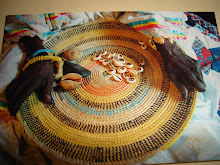











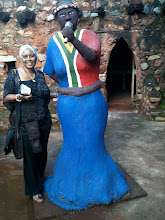











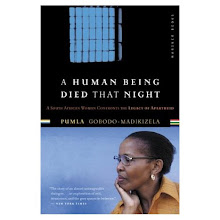

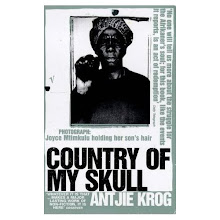
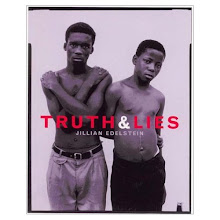




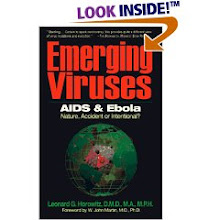





















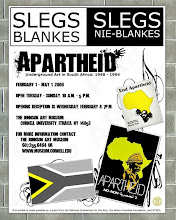




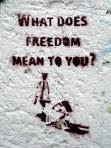






















No comments:
Post a Comment